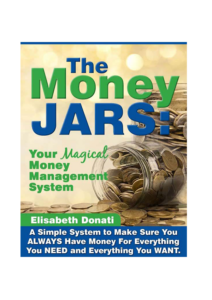We all know that banks, credit unions, and companies that offer credit cards are in the “use our money so we can charge you compound interest on the balance and make a lot of money from your inability to pay it back in full because you never learned about money” business. And you know what? That’s their right as companies residing in a capitalistic country. I’m all for it.
I believe in capitalism; it allows us to earn and make money in a multitude of ways, giving us the freedom to create our own lives…a freedom that people in other countries may never experience.
Visa (and MasterCard) are actually the processors of credit card transactions between the customer and the merchant…kinda like Fedex or UPS which deliver packages but doesn’t send them. They don’t offer credit cards or extend credit to consumers though they are certainly part of the process that has allowed uneducated and undisciplined consumers to run up debt they can’t handle.
What do VISA and capitalism have to do with each other? Great question! VISA has an extensive financial education program for kids and adults.
Before we connect the dots, let’s look at a concept near and dear to many of our hearts…financial freedom.
Definition of Financial Freedom
When you ask kids or adults what the phrase ‘financial freedom’ means, you get a myriad of answers…most of which contain one basic theme: financial freedom means you can do whatever you want, whenever you want, with whomever you want and not have to work anymore to earn the money to do these things.
Financial freedom used to be connected to the phase of life we refer to as retirement and retirement used to be connected to a specific age group…over 60ish. Over the years, however, this has changed. Now, we meet people in their 30s or 40s who are retired or semi-retired. If you grew up with the former meaning of retirement, you are often taken aback because they don’t seem OLD enough to be retired.
But what does age have to do with retirement, except that it plays into our preconceived beliefs that if you’re retired, you’re old(er)?
I think Robert Kiyosaki coined it best in his famous book, Rich Dad Poor Dad…
Robert says you are financially free when you have more income coming in each month from your investments than you have going out for the expenses of your chosen lifestyle. In other words, you have your money and assets working for you instead of you working for money and assets. You may, indeed, still be working but you’re working because you want to, not because you have to.
This is a good position to be in…at any age! And the beauty of it is, that the earlier you can put yourself in this position, the more good you can do with your life, your energy and your extra money.
VISA’s Practical Money Skills and Capitalism…The Connection and What’s Missing
There IS no connection and therein lies the problem with their financial literacy course. Yes, the program does contain the basic financial literacy lessons most of us have come to expect in a financial education curriculum. The missing elements are critical lessons about investing in assets…namely about creating a business or investing in real estate…the only two investing pieces (two out of many) are about IRAs and Mutual Funds and the stock market.
In Camp Millionaire and The Money Game, players learn about, and get to invest in, The Three Pillars of Wealth: real estate, the stock market and business. We explore the advantages and disadvantages of all three, dispel the basic myths about each one, (e.g., the stock market is risky) and talk about why it’s important that you own, i.e., invest in, more than one type of asset.
Ever heard the financial principle, “Don’t put all your eggs in one basket?” That’s where that comes from.
Kids and teens learn that most financially free people invest in at least two of the pillars, and probably all three, but normally focus on one…usually the one they enjoy, understand the best and are the most successful in.
We talk about Bill Gates and Steve Jobs being big Business Pillar people, Donald Trump being the most well-known Real Estate Pillar investor and Warren Buffet being the Stock Market Pillar guru. They understand that Donald Trump does real estate as a business, that Gates and Jobs had a lot of stock in their companies and owned real estate and that Mr. Buffet probably owned a few houses and stock in other people’s companies as well as owning his own stock market business.
So why do most financial literacy curriculums leave out these critical investing lessons? Probably because most people aren’t versed in anything but getting a job and investing their money in the company’s offered 401K OR they’ve hired a financial advisor/planner who also only has his or her money in the stock market…and probably mutual funds at that.
The financial lessons that teach the basic principles of “diverse investing” is so critical to an adult’s financial success in life that any financial literacy curriculum missing them should be passed over in favor of one that does. Really…it’s that important!
Check out the Camp Millionaire and The Money Game financial literacy education curriculums if you want to teach your students the whole picture.




0 Comments